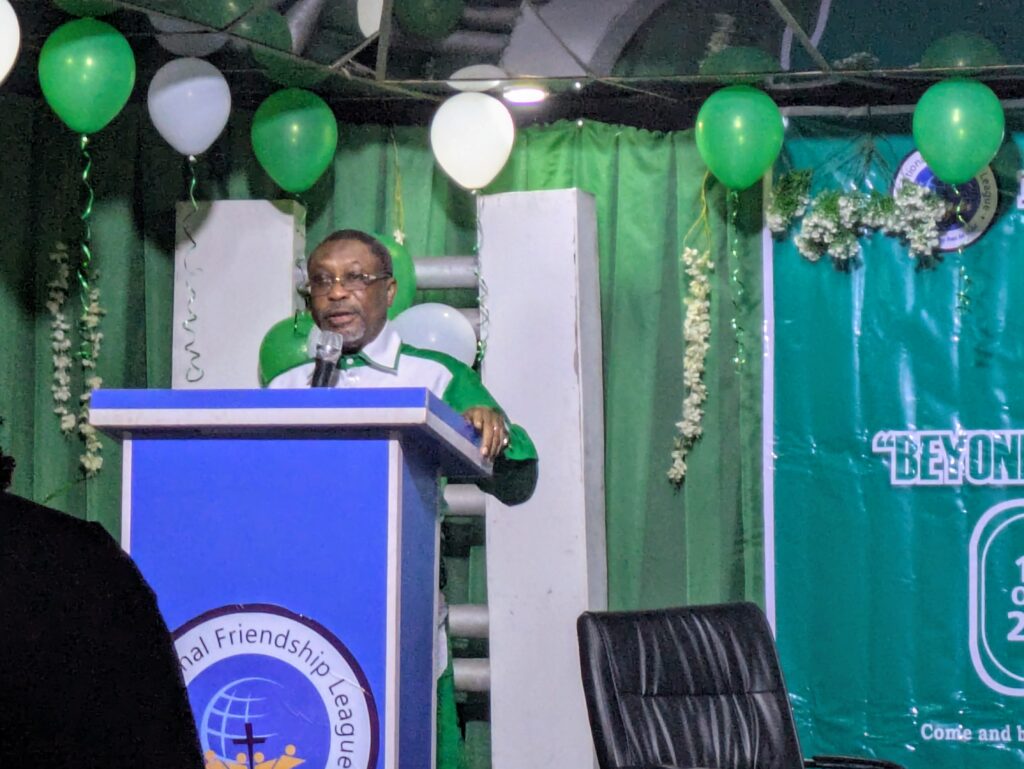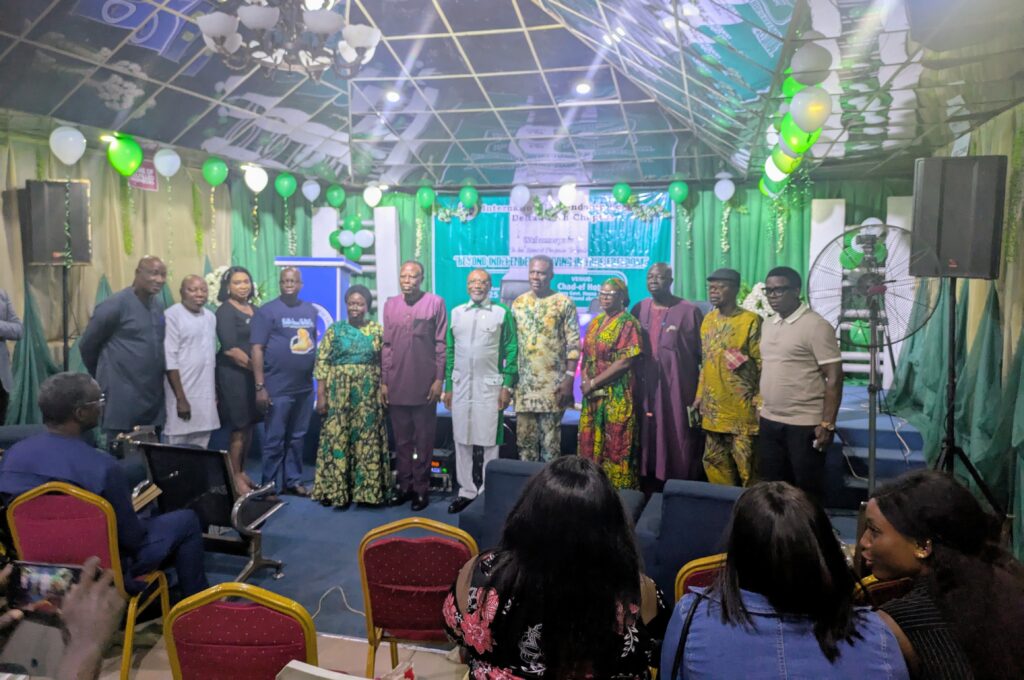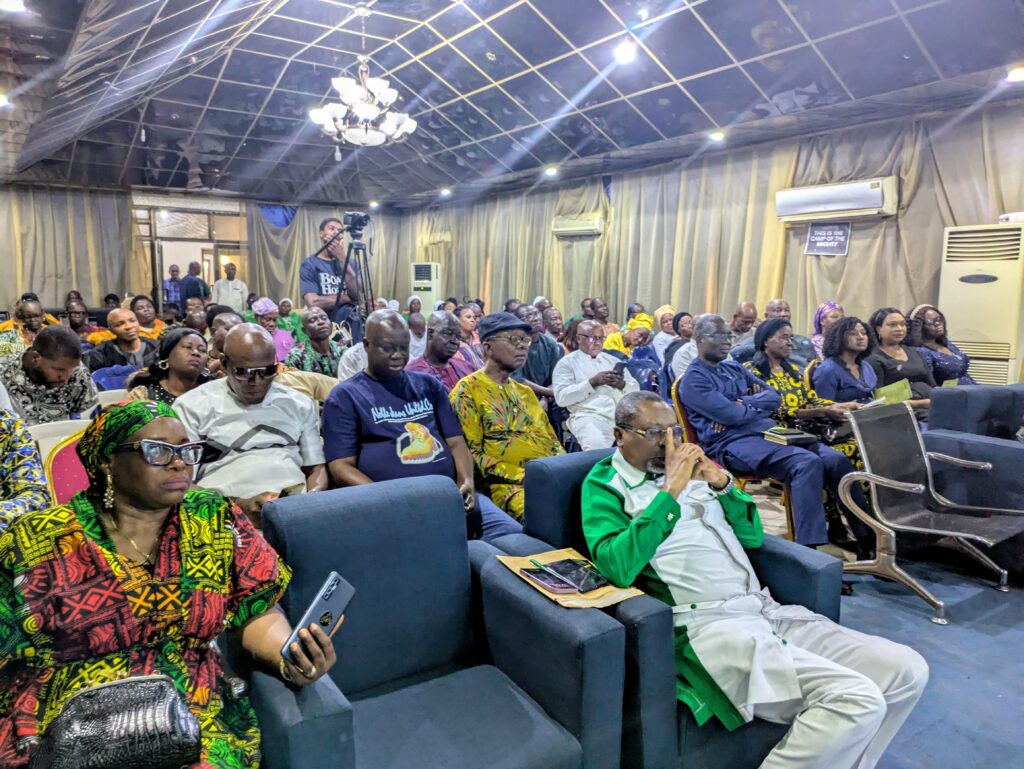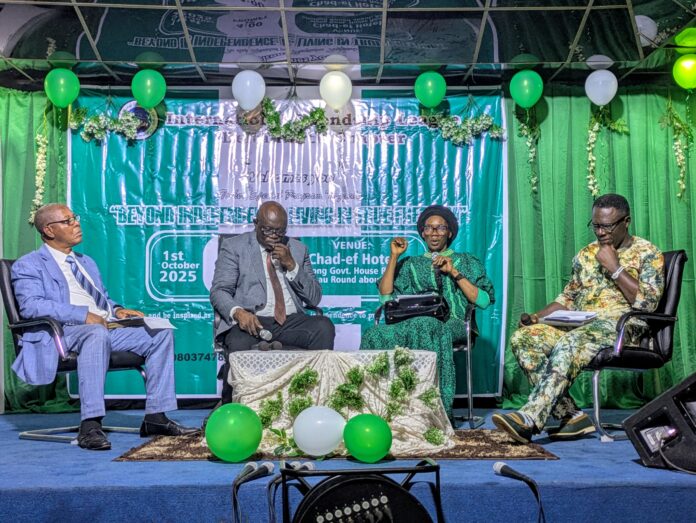It was a day of reflection in Asaba, Delta State, on Wednesday, October 1, 2025, as the International Friendship League (IFL), Delta State Chapter, hosted a special Independence Day program tagged “Beyond Independence: Living in True Freedom.”
The program, held on Nigeria’s 65th Independence anniversary, brought together people from diverse backgrounds—pastors, professors, senior government officials, journalists, and students—to reflect on what true freedom truly means.
Chairman’s Call: Independence Is Responsibility, Not Just Celebration

The Chairman of the program, Mr Reginald Bayoko, the immediate past Head of Service of Delta State, set the tone by reminding Nigerians that independence is more than just raising a flag.
He explained that while October 1, 1960, gave Nigeria sovereignty, true freedom is what Nigerians must continue to pursue every day. Quoting Galatians 5:1, he urged citizens to guard their liberty and see independence as a call to higher responsibility.
“True freedom starts with freedom from fear,” Bayoko said. “Nation-building is a team effort. If my freedom reduces yours, then it is not true freedom. We must raise the bar of what a free Nigeria can be.”
He also advised young people to invest in education, entrepreneurship, accountability, and moral values, stressing that independence gave Nigeria a voice, but true freedom teaches us how to listen.
Prof. Robert O. Dode: From Colonialism to Democracy

In the panel discussion, Prof. Robert O. Dode, Deputy Vice Chancellor (Academic) of Dennis Osadebey University, gave a historical perspective.
He explained how colonialism shaped Nigeria primarily for the benefit of foreigners, rather than its citizens, noting that the roads built during that time were mostly designed to transport raw materials to ports. Even after independence, he argued, what Nigeria got was “flag independence,” because the economy and politics still depended heavily on colonial powers.
“Neo-colonialism is like giving someone a goat but tying it to a post,” he said. “It looks free, but it is still limited.”
Prof. Dode also noted how military rule further restricted freedom, before Nigeria finally returned to democracy. “We’ve had 26 years of uninterrupted democracy, which is worth celebrating,” he said. “But we must be honest—our journey to true political and economic freedom is not complete.”
In a second contribution, Prof. Dode stressed the importance of the “God factor” in leadership.
“Whether it’s financial management, political leadership, or judicial reforms, if God is not at the centre, success cannot be achieved,” he said.
From a political science view, he explained that true freedom is not just the absence of chains, but the presence of opportunities, justice, and the right conditions for every citizen to thrive. He compared it to the early church in Acts, where believers shared resources so no one was left behind.
“Nigeria is one of the most blessed countries in the world,” he added, “but as Chinua Achebe wrote in The Trouble with Nigeria, the real problem is leadership.”
Pastor Phillips Enweazor: Spiritual Freedom Is the Foundation
Adding a spiritual perspective, Pastor Phillips Enweazor (Regional Overseer, DCLM Anioma) spoke on the theme “Spiritual Freedom: The Foundation of True Liberty.”
He explained that spiritual slavery—being controlled by sin—is the greatest barrier to true freedom. Citing John 8:34, he said: “Whosoever committeth sin is the servant of sin.”
“No matter your talent, skill, or wealth, if you are not free from sin, you are not truly free,” he told the audience. “True freedom comes when Christ delivers a person from the power of sin. Only then can they maximise the gifts and opportunities God has given.”
Mrs Anyafulu Anthonia: Linking Spiritual and Financial Freedom
On her part, Mrs Anyafulu Anthonia, Director of Finance and Accounts, Ministry of Trade & Investment, explained that Nigeria’s problems are not only political or economic, but also spiritual.
Quoting Hosea 7:8, she compared Nigeria to Israel in the Bible—“a cake not turned,” incomplete because it turned away from God.
She then linked this to financial freedom, saying it requires discipline, budgeting, saving, and investing in assets that generate passive income. But she emphasised that true wealth also comes from God.
“Political freedom without spiritual freedom is empty,” she said. “Economic progress without dependence on God is unstable. But when we live responsibly and walk with God, we can experience freedom in our hearts, finances, communities, and as a nation.”
The event ended with a panel discussion where participants agreed that Nigeria’s independence must be matched with personal responsibility, godly leadership, financial wisdom, and spiritual freedom.
As the speakers reminded, raising the green-white-green flag in 1960 was just the beginning. True freedom is still a journey—one that requires courage, faith, discipline, and collective effort.




